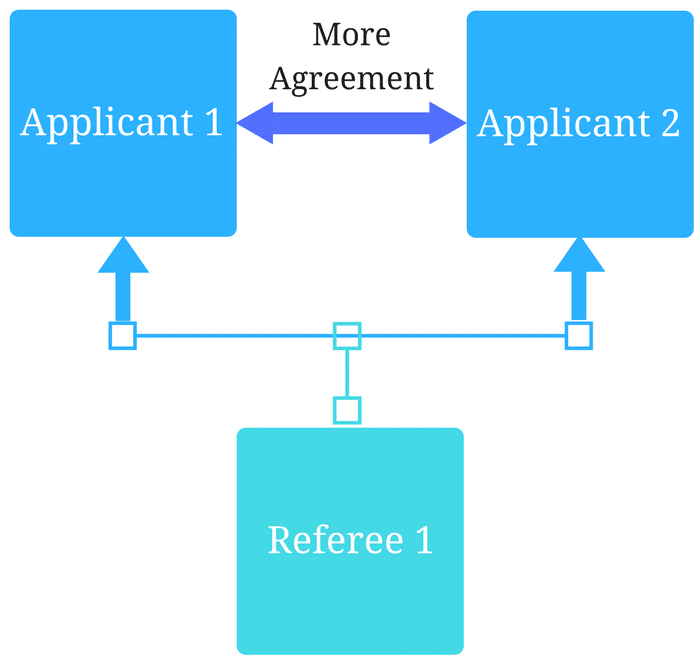Dalhousie University Q&A: A New Wave in Holistic Admissions

September 21, 2023
Recently, Acuity Insights hosted a webinar with Dalhousie University’s Faculty of Management. We learned more about why the department has decided to re-engineer their admissions process for the upcoming academic year, putting in place leading-edge admissions practices. Andrea Wright, Market Strategy Manager at Acuity Insights, discussed this shift with two key leaders who helped to spearhead the changes in the Faculty of Management:
- Dan Shaw, Director, Corporate Residency MBA program
- Jenna Downey, Associate Director, Graduate Recruitment and Admissions
How do you bring stakeholders together for important admissions changes?
The MBA office undertook a monumental task by re-evaluating its admissions process. The goals were to ensure a fairer approach and promoting various voices. At the time, their traditional admissions process encompassed standard measures like GPA, GMAT, LSAT, GRE, DAT, MCAT, personal essays, and face-to-face or virtual interviews.
As part of the review, the team engaged in a series of consultations with various professional schools on campus to glean insights into alternative admissions approaches. As a result, they implemented a broader admissions committee with a focus on widening pathways and introduced new evaluation criteria.
Since the Faculty of Management program is designed for immediate immersion, they wanted to emphasize coachability and awareness of current developmental goals. Through interactions with various programs like law, nursing, medicine, and dentistry, they were introduced to the Casper test as a potential tool for soft skills assessment.
As the Faculty of Management program started to consider Casper, there was initial resistance regarding changes in the admission process, notably the removal of the GMAT requirement. The head of the finance department, who has a strong background in physics and math, provided data suggesting that the GMAT wasn’t a predictive tool for their needs.
This evidence, primarily initiated and analyzed by the Finance Area group, was pivotal in addressing concerns and eventually leading to the decision to eliminate the GMAT from their admissions criteria – while in turn incorporating Casper into the process. The data was then presented to the Faculty of Graduate Studies, University Senate, and others to gain alignment and buy-in for the elimination of GMAT and move to Casper.
How does Casper help to predict future success?
One of the changes that the Faculty of Management has made to its admissions is incorporating the Casper test into its process.
According to Dan Shaw, Casper is a superior predictor of academic results when compared to the GMAT. Not only does it predict academic performances, but it also provides insights into students’ potential performances during their residencies.
A key part of the Faculty of Management’s program is a Corporate Residency opportunity or 8-month work term that provides real work experience and business connections. In a pilot study, the Casper test predicted higher employee evaluations – for every 1 point increase on the Casper, the odds of receiving a higher employee evaluation increased 1.7 times.
Jenna Downey also highlighted a noteworthy correlation between students’ performance in the program and their Casper scores. Specifically, those who scored higher on Casper not only excelled academically but also demonstrated a strong performance in job placements with renowned firms like Deloitte in Human Capital Consulting. Moreover, the top 10% of Casper scorers emerged as actively engaged alumni, making significant contributions not only to the program but to their wider community as well. This compelling data underscores the predictive value of the Casper test in determining future success.
Why replace GMAT with Casper?
Dalhousie University’s Faculty of Management program is one of the first universities in Canada to eliminate the GMAT requirement.
While reviewing the admissions process, one of the significant concerns raised was the apparent absence of quantitative skill evaluation in the Casper test, as done by GMAT. Addressing this, Dan mentioned that several US institutions had started moving away from the GMAT. Their confidence stems from the belief that eliminating GMAT could potentially reduce barriers for marginalized student groups.
The team also consulted with various stakeholders about different components of their admissions process. While consulting with a Black student advisor, who was formerly an undergraduate student at Dalhousie, she shared that she didn’t apply to the Dalhousie MBA program because of the GMAT application requirement. Through various conversations the team learned that the GMAT was an obstacle for various student groups.
Jenna added another perspective, emphasizing the preparation time required for GMAT. Many students face challenges due to the time, opportunities, and costs associated with GMAT preparation. Casper, designed for authenticity rather than gaming the system, requires little to no preparatory time and much lower financial commitment.
About Casper
Casper is a unique open-response situational judgment test (SJT) used to evaluate social intelligence and professionalism in both undergraduate and graduate applicants. It offers real-life dilemmas and seeks to understand not just the applicant’s actions but their underlying motivations. Rooted in nearly 20 years of research, it was first developed at McMaster University in Canada.
Casper is designed to give academic programs a reliable gauge of an applicant’s soft skills alongside their technical abilities. It aids the comprehensive review processes of admission teams. Programs receive a singular score from Casper, which provides insights into a student’s potential beyond academic performance. As of now, over 700,000 learners have taken Casper for admissions into more than 600 academic programs globally.
To explore more about Casper and Dalhousie’s Faculty of Management’s decision to incorporate the test into admissions, listen to the full webinar recording.
Related Articles

How interviews could be misleading your admissions...
Most schools consider the interview an important portion of their admissions process, hence a considerable…
Reference letters in academic admissions: useful o...
Because of the lack of innovation, there are often few opportunities to examine current legacy…
